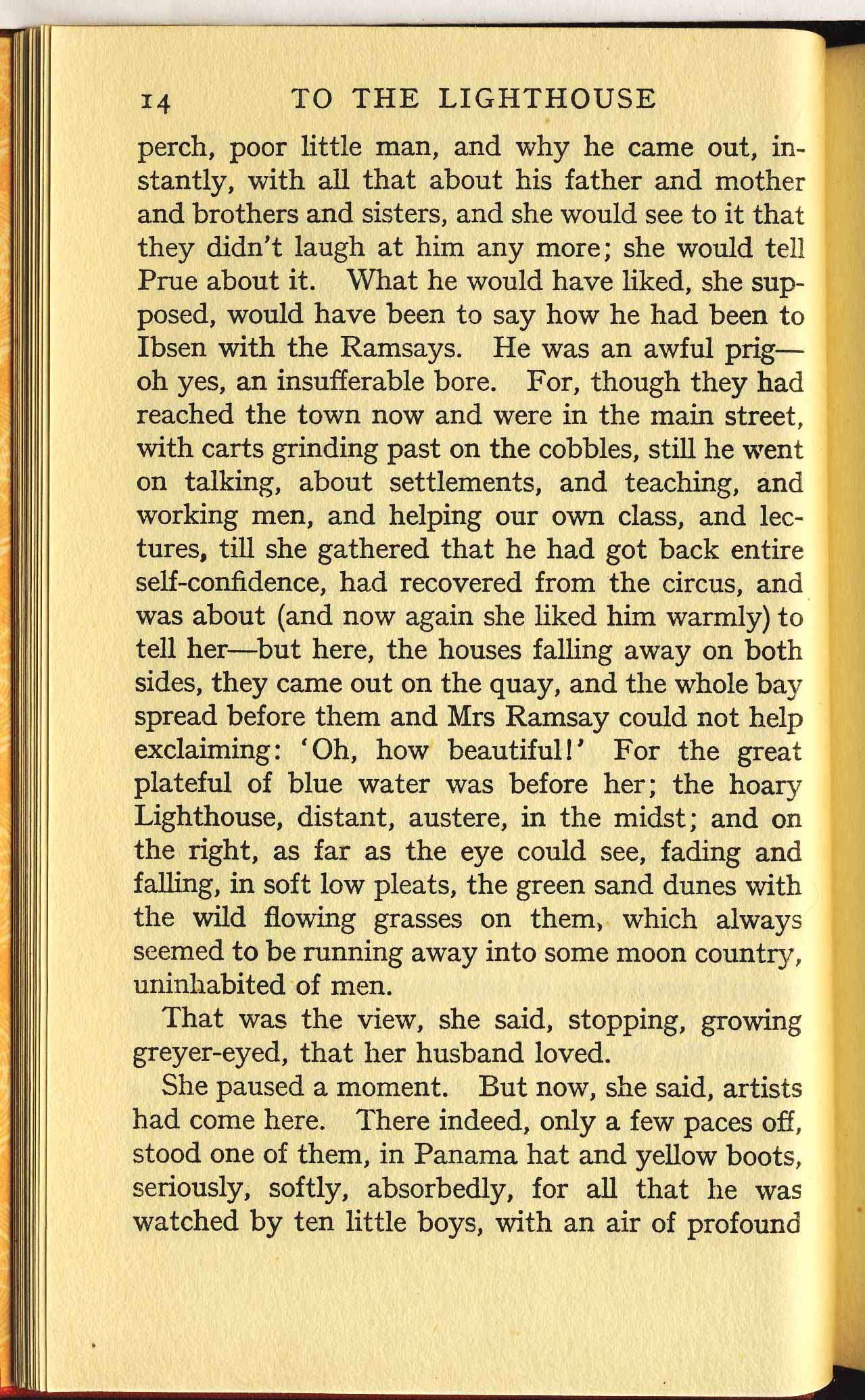
14 TO THE LIGHTHOUSEperch, poor little man, and why he came out, in-stantly, with all that about his father and motherand brothers and sisters, and she would see to it thatthey didnŌĆÖt laugh at him any more; she would tellPrue about it. What he would have liked, she sup-posed, would have been to say how he had been toIbsen with the Ramsays. He was an awful prigŌĆöoh yes, an insufferable bore. For, though they hadreached the town now and were in the main street,with carts grinding past on the cobbles, still he wenton talking, about settlements, and teaching, andworking men, and helping our own class, and lec-tures, till she gathered that he had got back entireself-confidence, had recovered from the circus, andwas about (and now again she liked him warmly) totell herŌĆöbut here, the houses falling away on bothsides, they came out on the quay, and the whole bayspread before them and Mrs Ramsay could not helpexclaiming, ŌĆśOh, how beautiful!' For the greatplateful of blue water was before her; the hoaryLighthouse, distant, austere, in the midst; and onthe right, as far as the eye could see, fading andfalling, in soft low pleats, the green sand dunes withthe wild flowing grasses on them, which alwaysseemed to be running away into some moon country,uninhabited of men.That was the view, she said, stopping, growinggreyer-eyed, that her husband loved.
She paused a moment. But now, she said, artistshad come here. There indeed, only a few paces off,stood one of them, in Panama hat and yellow boots,seriously, softly, absorbedly, for all that he waswatched by ten little boys, with an air of profound









